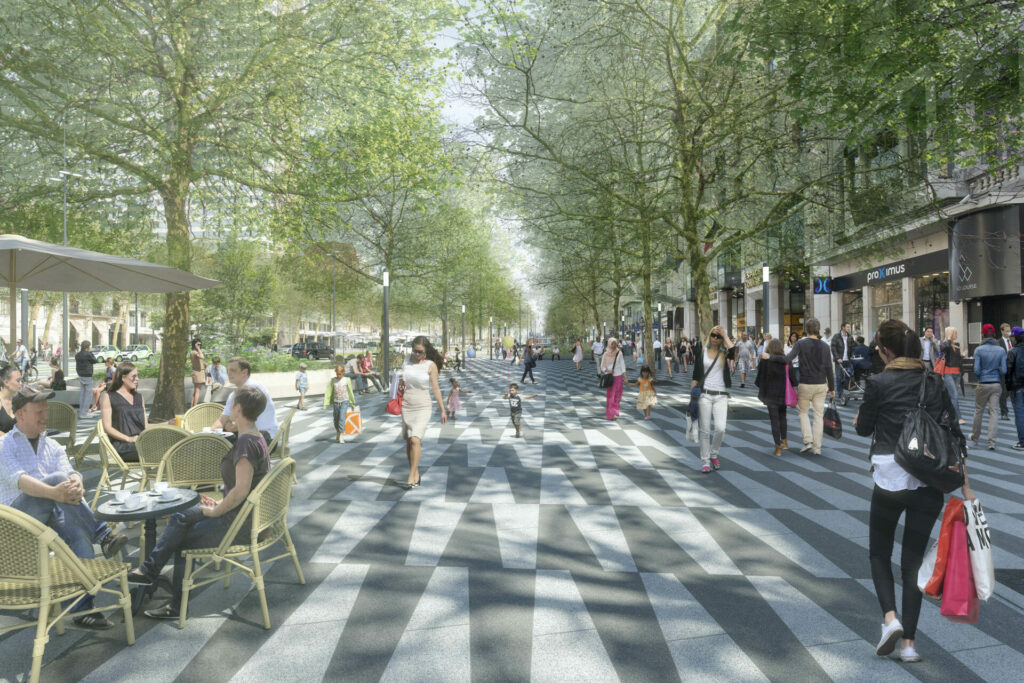The ’15-minute city’ concept draws fire from online conspiracy theorists

The popular concept of renovating urban areas for all inner city essential services, such as shops, parks or hospitals, to be within a 15-minute walk or bike ride from everyone’s homes and is coming under fire from post-Covid conspiracy theorists.
The French principle of the “15-minute city’” was developed by Franco-Colombian academic Carlos Moreno in 2015 and first gained popularity with advocates of sustainable cities, such as the C40 Group, but then spread to pique the interest of global organisations such as the United Nations and the World Economic Forum during the Covid-19 pandemic.
Support for the idea gained ground as people in most countries went through a series of lockdowns designed to keep the spread of the virus in check. Once allowed to venture out, restrictions kept movement to a minimum, fuelling the idea that having everything you need close by would remove the need for unnecessary travel – both benefitting the environment and adhering to health regulations in time of a pandemic.
Cities such as Paris, Melbourne and Copenhagen have already begun to reorganise certain neighbourhoods in line with this model, claiming that the concept creates places where it is more pleasant to live in and where people are less dependent on the car, therefore limiting pollution and global warming.
Today, however, while some academics claim that the concept could exacerbate inequality by increasing the gentrification of city centres, other more extreme views and conspiracy theories about the origin and the real intentions of the concept suggest a darker and more sinister agenda.
An initial search for the “15-minute city” on TikTok brings up a series of videos which claim that the new traffic plans are intended to limit the freedom of movement of residents who will eventually be punished by fines if they leave their neighbourhood.
“You can’t leave a ’15-minute city’ whenever you want,” says one man in a video about the Canadian city of Edmonton’s new traffic plan, which has been viewed more than 59,000 times on Facebook. “The city walls, the restrictions, the zones, will not be used to prevent people from entering, they will be used to lock everyone up,” he continues.
In the UK city of Oxford, city councillors reported being the target of abuse because of a plan to limit car traffic on bus routes during rush hour. An article that falsely claimed that residents would be “confined to their neighbourhood and should ask permission to leave it, all to supposedly ‘save the planet’,” was widely reported.
This article has been archived for your research. The original version from The Brussels Times can be found here.


